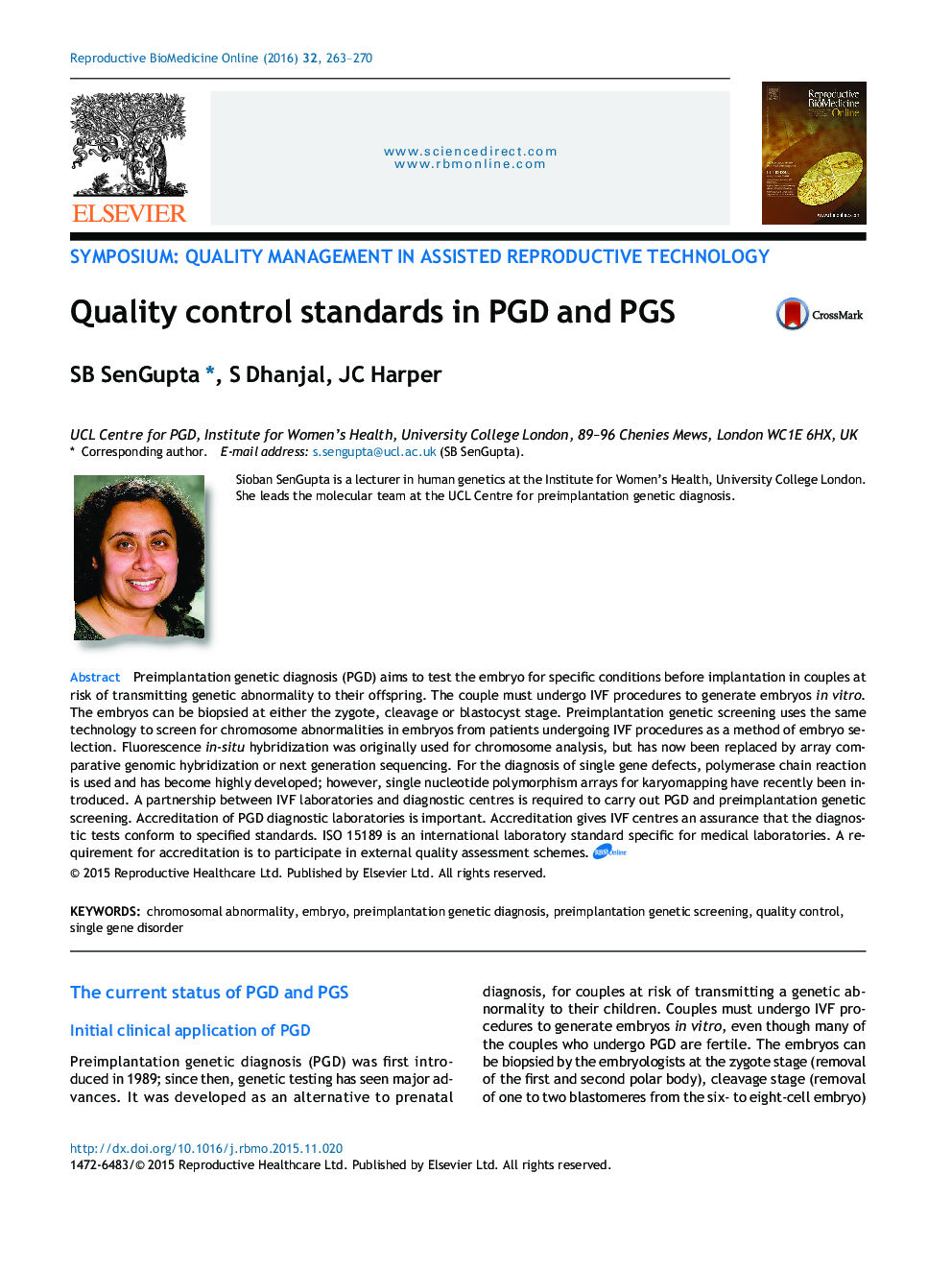| Article ID | Journal | Published Year | Pages | File Type |
|---|---|---|---|---|
| 6188551 | Reproductive BioMedicine Online | 2016 | 8 Pages |
Preimplantation genetic diagnosis (PGD) aims to test the embryo for specific conditions before implantation in couples at risk of transmitting genetic abnormality to their offspring. The couple must undergo IVF procedures to generate embryos in vitro. The embryos can be biopsied at either the zygote, cleavage or blastocyst stage. Preimplantation genetic screening uses the same technology to screen for chromosome abnormalities in embryos from patients undergoing IVF procedures as a method of embryo selection. Fluorescence in-situ hybridization was originally used for chromosome analysis, but has now been replaced by array comparative genomic hybridization or next generation sequencing. For the diagnosis of single gene defects, polymerase chain reaction is used and has become highly developed; however, single nucleotide polymorphism arrays for karyomapping have recently been introduced. A partnership between IVF laboratories and diagnostic centres is required to carry out PGD and preimplantation genetic screening. Accreditation of PGD diagnostic laboratories is important. Accreditation gives IVF centres an assurance that the diagnostic tests conform to specified standards. ISO 15189 is an international laboratory standard specific for medical laboratories. A requirement for accreditation is to participate in external quality assessment schemes.
